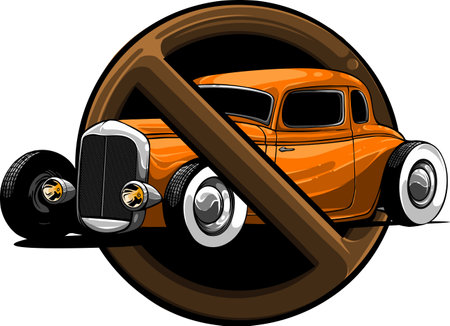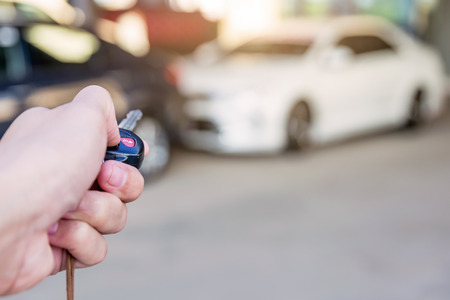1. Understanding Brake Failure
Learn about the common causes of brake failure and why it’s crucial to address issues early.
What Causes Brake Failure?
Brake failure can happen for several reasons, ranging from worn-out components to fluid leaks. Identifying the cause early can prevent dangerous situations on the road.
Common Causes of Brake Failure
| Cause | Description |
|---|---|
| Worn Brake Pads | Brake pads wear down over time, reducing stopping power and increasing braking distance. |
| Brake Fluid Leaks | Leaks in the brake system can cause a loss of hydraulic pressure, making it difficult to stop. |
| Overheated Brakes | Excessive braking can overheat brake components, causing them to lose effectiveness (brake fade). |
| Faulty Brake Lines | Corroded or damaged brake lines can prevent brake fluid from reaching the calipers. |
| Malfunctioning Master Cylinder | If the master cylinder fails, it won’t distribute brake fluid properly, leading to brake failure. |
Why Addressing Brake Issues Early Matters
Waiting too long to fix braking problems can put you and others at serious risk. Here’s why early detection is critical:
Key Reasons to Fix Brake Problems Right Away
- Safety First: Brake failure can lead to accidents, injuries, and even fatalities.
- Cost Savings: Ignoring small issues can lead to expensive repairs down the line.
- Vehicle Longevity: Keeping your braking system in top shape extends the life of your car.
- Better Performance: Well-maintained brakes provide smoother stops and better handling.
How to Detect Brake Issues Early
Recognizing warning signs early can prevent total brake failure. In the next section, well dive into the most common symptoms of brake problems and how to spot them before it’s too late.
2. Warning Signs of Brake Problems
Recognizing the warning signs of brake failure can help you avoid a dangerous situation on the road. If you notice unusual noises, vibrations, or changes in your brake pedals responsiveness, its time to take action.
Squeaking or Squealing Noises
One of the first indicators of a braking issue is a high-pitched squeaking or squealing noise. This sound is often caused by worn-out brake pads. Many brake pads have built-in wear indicators that produce a squealing noise when its time to replace them.
Vibrations When Braking
If you feel vibrations or pulsations through the brake pedal or steering wheel when you apply the brakes, it could indicate warped rotors. Warped brake rotors can reduce stopping power and affect overall braking performance.
Soft or Spongy Brake Pedal
A brake pedal that feels soft, spongy, or sinks to the floor when pressed could mean there is air in the brake lines or a problem with the brake fluid. It could also indicate a leak in the braking system, which is a serious safety concern.
Common Brake Problems and Their Causes
| Brake Issue | Possible Cause |
|---|---|
| Squeaking or squealing brakes | Worn-out brake pads |
| Vibrations when braking | Warped brake rotors |
| Soft brake pedal | Brake fluid leak or air in brake lines |
When to Get Your Brakes Checked
If you experience any of these warning signs, its important to have your brakes inspected by a professional as soon as possible. Ignoring these symptoms can lead to more serious and costly repairs or, worse, brake failure while driving.

3. Common Causes of Brake Failure
Understanding the most common reasons behind brake failure can help you prevent dangerous situations on the road. Here are some of the key factors that can lead to braking issues:
Worn-Out Brake Pads
Brake pads wear down over time due to regular use. When they become too thin, they lose their ability to generate enough friction to stop your vehicle effectively. This can lead to increased stopping distances and even brake failure.
Signs of Worn-Out Brake Pads:
- Squeaking or grinding noises when braking
- Longer stopping distances
- Vibrations in the brake pedal
Brake Fluid Leaks
Brake fluid plays a crucial role in the hydraulic braking system by transmitting force to the brake components. If theres a leak in the system, it can lead to reduced braking power or even complete failure.
Common Causes of Brake Fluid Leaks:
| Cause | Description |
|---|---|
| Damaged Brake Lines | Cracks or corrosion can cause leaks in the fluid lines. |
| Worn Seals | Rubber seals inside the master cylinder can wear out over time. |
| Loose Bleeder Valves | If not tightened properly, they can allow fluid to leak. |
Overheating Brakes
Excessive braking, such as driving downhill for extended periods or heavy braking during traffic, can cause the brakes to overheat. When this happens, brake fade can occur, reducing stopping power.
How to Prevent Overheating:
- Use engine braking when driving downhill
- Avoid riding the brakes
- Ensure proper ventilation for brake components
By recognizing these common causes of brake failure, you can take proactive steps to maintain your braking system and ensure your safety on the road.
4. How to Fix and Prevent Brake Issues
Discover maintenance tips and repair solutions to keep your braking system in top condition. Addressing brake issues early can prevent costly repairs and ensure your safety on the road.
Regular Brake Inspections
Routine inspections help identify wear and tear before it becomes a major problem. A good rule of thumb is to check your brakes every 10,000 to 15,000 miles or during each oil change.
Common Brake Repairs and Solutions
If you notice signs of brake failure, knowing the right repair can save you time and money. Here’s a breakdown of common issues and how to fix them:
| Brake Issue | Possible Cause | Solution |
|---|---|---|
| Soft or Spongy Brake Pedal | Air in the brake lines, worn brake fluid | Bleed the brakes and replace old fluid |
| Grinding Noise | Worn-out brake pads | Replace brake pads immediately |
| Steering Wheel Vibration | Warped rotors | Resurface or replace rotors |
| Brake Warning Light | Low fluid, faulty brake components | Check fluid levels; inspect for leaks |
Preventive Maintenance Tips
Keeping your braking system in good condition can help you avoid sudden failures. Follow these tips:
- Check Brake Fluid: Low or contaminated fluid can affect brake performance. Replace it as recommended in your vehicle’s manual.
- Listen for Unusual Noises: Squealing, grinding, or clicking sounds indicate potential problems that need attention.
- Monitor Brake Pad Thickness: Replace brake pads when they reach about 3mm thickness to maintain stopping power.
- Avoid Riding the Brakes: Excessive braking causes overheating and premature wear. Use engine braking when possible.
- Have Rotors Checked: Warped rotors can make braking inefficient. Have them inspected and resurfaced if necessary.
When to See a Professional Mechanic
While some brake maintenance tasks can be done at home, certain issues require professional attention. Visit a trusted mechanic if you:
- Experience a loss of braking power
- Notice brake fluid leaks under your vehicle
- Feel unusual vibrations or pulling when braking
- Hear persistent grinding noises even after replacing pads
By staying proactive with brake maintenance, you can ensure a safe and smooth ride while avoiding costly repairs.
5. When to Seek Professional Help
Understanding when a braking issue is beyond a DIY fix is crucial for your safety. While some minor problems, like replacing brake pads or adding more brake fluid, can be handled at home, more serious issues require the expertise of a certified mechanic. Here’s how to determine when it’s time to visit a professional.
Signs That Require Professional Attention
If you notice any of these symptoms, it’s best to stop driving and get your car inspected by a mechanic:
| Brake Issue | Why You Should See a Mechanic |
|---|---|
| Brake Pedal Feels Soft or Spongy | Could indicate air in the brake lines or a failing master cylinder. |
| Grinding or Screeching Noises | Likely caused by worn-out brake pads that could damage the rotors. |
| Brake Warning Light Stays On | There may be an issue with your brake system that requires diagnostics. |
| Car Pulls to One Side When Braking | Possible uneven brake pad wear, caliper issues, or fluid leakage. |
| Burning Smell While Braking | Could be due to overheated brakes, low brake fluid, or a stuck caliper. |
Why Professional Help Matters
Brake systems are complex, and trying to repair serious issues without proper training can make the situation worse. Certified mechanics have specialized tools and expertise to diagnose and fix brake problems safely. Ignoring warning signs or attempting DIY fixes on critical components can lead to brake failure, putting you and others in danger.
When DIY Fixes Aren’t Enough
While topping off brake fluid or changing brake pads can be done at home, issues with the master cylinder, brake lines, or ABS system should be left to professionals. If you’re ever unsure about a brake problem, it’s always safer to consult a mechanic rather than risk further damage or an accident.


